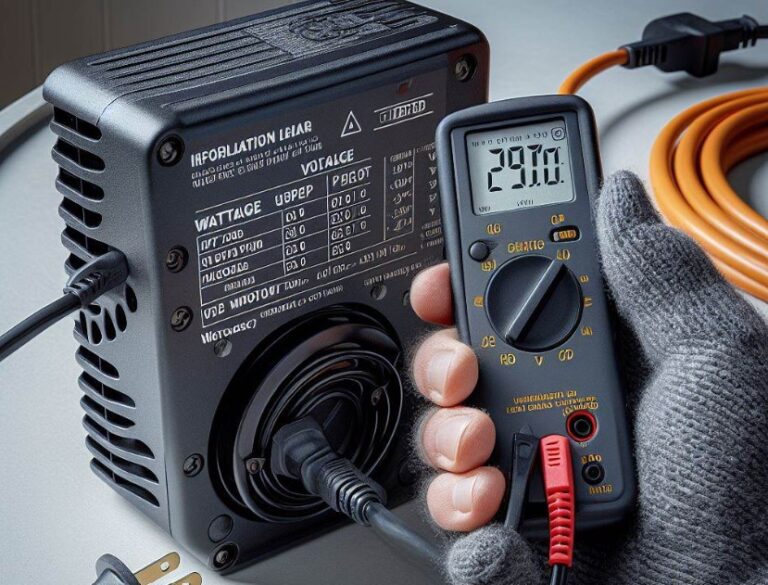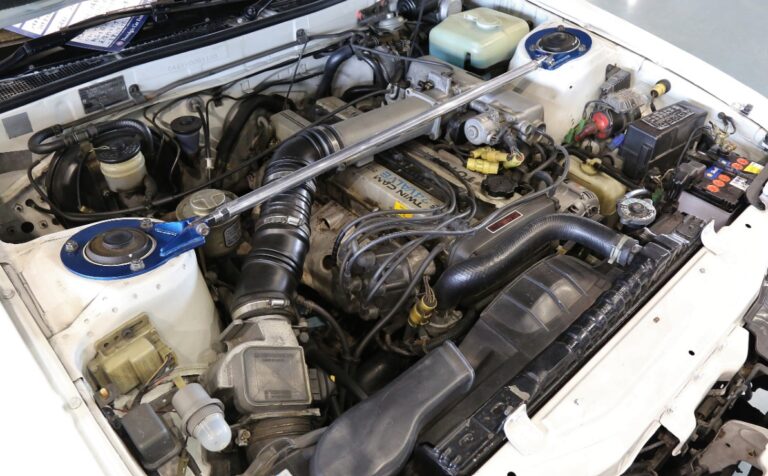Difference Between Dayton And Budd Wheels [Explained]
The Difference Between Dayton And Budd Wheels has always been a topic of keen interest in the automotive world. These two types of wheels, each with unique features and applications, serve different purposes in the automotive industry. Understanding these differences is crucial for anyone involved in vehicle maintenance, customization, or repair.
Key Takeaways
- Dayton Wheels: Known for their spoke design, used mainly in heavy trucks.
- Budd Wheels: Feature a disc design, commonly found in light to medium trucks.
- Mounting Method: Dayton uses a center hub mount, and Budd employs a stud-mounted approach.
- Maintenance: Dayton wheels require regular tightening, while Budd wheels offer easier maintenance.
- Application: Dayton is preferred for heavy-duty applications; Budd is ideal for standard commercial use.
Difference Between Dayton And Budd Wheels
The main difference lies in their construction and mounting methods. Dayton wheels are characterized by their spoke design and center hub mounting. In contrast, Budd wheels showcase a disc design and are stud-mounted, making them distinct in both appearance and functionality.

Dayton Wheels: Characteristics and Usage
Dayton wheels, often seen in heavy-duty trucks, are known for their robust spoke design. This construction is ideal for withstanding the heavy loads typically associated with large vehicles.
Design and Construction
- Spoke Design: Provides strength and durability.
- Center Hub Mounting: Requires regular maintenance to ensure safety.
Applications and Maintenance
- Heavy-Duty Use: Common in large trucks and trailers.
- Maintenance Needs: Regular tightening of the spokes is necessary.
Budd Wheels: Features and Applications
Budd wheels, commonly found in lighter trucks, feature a disc design. This construction offers ease of maintenance and is suited for a wide range of commercial vehicles.
Design and Efficiency
- Disc Design: Simplifies the wheel’s structure.
- Stud-Mounted: Allows for easier installation and removal.
Use in Commercial Vehicles
- Light to Medium Trucks: Widely used due to their versatility.
- Maintenance Advantage: Lower maintenance requirements compared to Dayton wheels.
Mounting Differences and Implications
The mounting mechanisms of Dayton and Budd wheels differ significantly, impacting their application and maintenance.
Dayton Wheel Mounting
Dayton wheels utilize a center hub mounting system. This method, while sturdy, requires regular attention to ensure the spokes remain tight and secure.
Center Hub Mounting
- Spoke Tightening: Essential for maintaining wheel integrity.
- Application: Preferable for heavy-duty vehicles due to its robust nature.
Budd Wheel Mounting
Budd wheels are mounted using studs, which simplifies the process of installation and maintenance, making them a popular choice for standard commercial vehicles.
Stud-Mounted Approach
- Ease of Installation: Simplifies wheel changes and maintenance.
- Widespread Use: Ideal for a variety of commercial applications.
Maintenance and Longevity
The maintenance requirements of Dayton and Budd wheels are a crucial aspect of their overall functionality and longevity.
Maintaining Dayton Wheels
Dayton wheels demand regular maintenance, primarily focusing on the tightening of spokes to prevent wheel failures.
Regular Maintenance Needs
- Spoke Check: Essential to ensure safety and performance.
- Longevity: Proper maintenance can significantly extend the wheel’s life.
Budd Wheel Care
Budd wheels offer easier maintenance due to their disc design and stud mounting, requiring less frequent checks compared to Dayton wheels.
Lower Maintenance Demands
- Ease of Care: Simplifies routine checks.
- Durability: Proper care ensures a longer lifespan.
Applications in Different Vehicle Types
The choice between Dayton and Budd wheels often depends on the type of vehicle and its intended use.
Dayton Wheels in Heavy Trucks
Dayton wheels are predominantly used in heavy trucks and trailers where robust construction is essential.
Heavy-Duty Applications
- Strength: Ideal for carrying heavy loads.
- Preference: Chosen for vehicles that require strong wheel support.
Budd Wheels in Commercial Use
Budd wheels are more commonly used in light to medium commercial trucks due to their ease of maintenance and versatility.
Versatile Use
- Wide Application: Suitable for various commercial vehicles.
- Advantage: Preferred for standard transport and commercial activities.
Can You Change Dayton Wheels To Budd Wheels?
Changing from Dayton wheels to Budd wheels is not a straightforward task due to the fundamental differences in their design and mounting systems. Dayton wheels, known for their spoke design, use a center hub mounting system. Budd wheels, on the other hand, utilize a stud-mounted approach with a disc design.

The process of converting from one type to the other involves not just changing the wheels but also modifying the vehicle’s axle and hub assembly.
This is because the mounting mechanisms are entirely different. For instance, a vehicle designed for Dayton wheels would require a new hub system to accommodate Budd wheels.
Such a conversion can be costly and time-consuming, and it often requires professional assistance to ensure safety and compatibility with the vehicle’s design. Additionally, it’s crucial to consider the impact of such a change on the vehicle’s handling, load capacity, and overall performance.
Therefore, while technically possible, converting from Dayton to Budd wheels is usually not recommended due to the complexities and costs involved.
How Do I Identify A Dayton Wire Wheel?
Identifying a Dayton wire wheel can be done by looking at several key characteristics. Dayton wire wheels are distinctive for their classic spoke design, which is different from the solid disc design of Budd wheels. Here are some steps to identify a Dayton wire wheel:

- Spoke Pattern: Dayton wheels have numerous spokes radiating from the hub to the rim. These spokes are typically made of steel and are quite prominent.
- Center Hub Mounting: Dayton wheels are mounted to the vehicle using a center hub system. This hub is the central point where all the spokes converge.
- Manufacturer Markings: Often, Dayton wheels will have the manufacturer’s logo or name stamped on the hub or the rim, which can be a clear identifier.
- Hubcap Design: Dayton wheels usually have a distinctive hubcap that covers the central hub, often branded with the Dayton logo.
- Vehicle Type: Dayton wheels are commonly found on heavy trucks and trailers, so the type of vehicle can also be a clue.
It’s important to note that while these characteristics can help in identifying Dayton wheels, consulting a professional or referring to manufacturer guidelines is advisable for accurate identification.
Can I Change Wheel Types Easily?
Changing wheel types, such as from Dayton to Budd or vice versa, is not an easy task. It requires more than just swapping the wheels; it involves significant modifications to the vehicle’s wheel mounting system. Each type of wheel has a unique mounting mechanism and design that is not directly compatible with the other.
For instance, changing from a spoke wheel (like Dayton) to a disc wheel (like Budd) would typically require altering the axle and hub assembly to match the new wheel’s mounting requirements.
This process can be complex, expensive, and time-consuming. It also requires technical expertise to ensure that the modifications do not compromise the vehicle’s safety and performance.
Moreover, such changes can impact the vehicle’s handling characteristics, weight distribution, and overall aesthetics. Therefore, while it is technically possible to change wheel types, it often involves a substantial investment of resources and should be carefully considered based on the vehicle’s intended use and the owner’s requirements.
Conclusion
In summary, the Difference Between Dayton and Budd Wheels lies in their design, mounting methods, maintenance needs, and applications. Dayton wheels, with their spoke design, are ideal for heavy-duty use but require regular maintenance.
Budd wheels, on the other hand, offer ease of maintenance and are suitable for a wide range of commercial vehicles. Understanding these differences is vital for making informed decisions regarding vehicle maintenance and customization.
People Also Ask
Is it easier to detect damage on Dayton or Budd wheels?
Damage detection can be more straightforward on Budd wheels due to their disc design, which provides a clear view of the wheel’s surface. In contrast, Dayton wheels, with their intricate spoke design, might require more thorough inspections to identify potential damage or issues.
Can Budd wheels improve fuel efficiency in vehicles?
Budd wheels, particularly those made from lighter materials like aluminum, can contribute to overall vehicle weight reduction, which may lead to improved fuel efficiency. The less a vehicle weighs, the less energy it requires to move, potentially leading to fuel savings.
Are there any specific tools required for maintaining Dayton wheels?
Yes, maintaining Dayton wheels typically requires specialized tools to tighten and adjust the spokes. These tools are necessary to ensure that the spokes are evenly tightened, maintaining the wheel’s balance and structural integrity.
Can Dayton and Budd wheels fit on any truck or trailer?
No, Dayton and Budd’s wheels are designed for specific types of trucks and trailers based on their mounting systems and load-bearing capacities. It’s essential to check the vehicle’s specifications and compatibility before choosing between Dayton and Budd wheels.

Welcome to the exhilarating world of Matt Rex, a professional car racer turned renowned vehicle enthusiast. Immerse yourself in his captivating blog as he shares heart-pounding adventures, expert reviews, and valuable insights on cars, trucks, jets, and more. Fuel your passion for speed and discover the beauty of vehicles through Matt’s engaging stories and meticulous expertise. Join the ever-growing community of enthusiasts who find inspiration and expert advice in Matt Rex’s blog—a digital hub where the thrill of speed meets the pursuit of knowledge.

![How To Get Jet Ski Off Floating Dock? [3 Workings Ways]](https://www.turbochaos.com/wp-content/uploads/2023/08/How-To-Get-Jet-Ski-Off-Floating-Dock-768x512.jpg)




